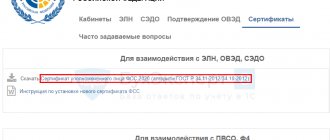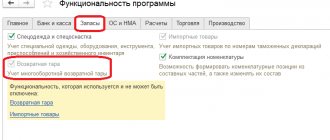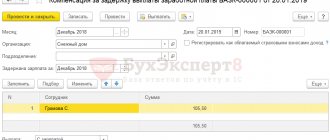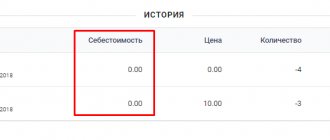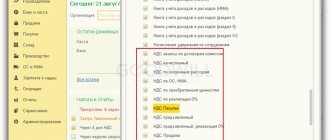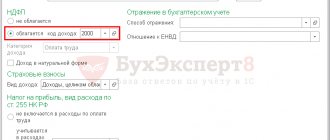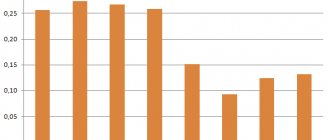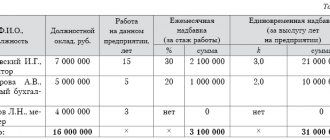HR Specialist
Unified qualification directory of positions of managers, specialists and other employees (US), 2021 Qualification directory of positions of managers, specialists and other employees Sections “General industry qualification characteristics of positions of workers employed in enterprises, institutions and organizations” and “Qualification characteristics of positions of employees employed in scientific research institutions, design, technological, design and survey organizations” approved by Resolution of the Ministry of Labor of the Russian Federation dated August 21, 1998 N 37 (as amended on May 15, 2013)
Information security specialist
Job responsibilities. Performs work to staff the enterprise with personnel of the required professions, specialties and qualifications. Takes part in the recruitment, selection, and placement of personnel. Conducts a study and analysis of the official and professional qualification structure of the personnel of the enterprise and its divisions, established documentation for personnel records related to the hiring, transfer, employment and dismissal of employees, the results of certification of employees and assessment of their business qualities in order to determine the current and future needs for personnel, preparing proposals for filling vacant positions and creating a reserve for promotion. Participates in the study of the labor market to determine sources of satisfying the need for personnel, establishing and maintaining direct connections with educational institutions, contacts with enterprises of a similar profile. Informs company employees about available vacancies. Participates in the development of long-term and current labor plans. Monitors the placement and placement of young specialists and young workers in accordance with the profession and specialty obtained at the educational institution, conducts their internships, and takes part in the adaptation of newly hired workers to production activities. Participates in the preparation of proposals for personnel development, business career planning, training and professional development of personnel, as well as in evaluating the effectiveness of training. Takes part in organizing the work, methodological and information support of qualification, certification, and competition commissions, and processing their decisions. Analyzes the state of labor discipline and compliance by enterprise employees with internal labor regulations, personnel movement, participates in the development of measures to reduce turnover and improve labor discipline. Controls the timely registration of the admission, transfer and dismissal of employees, the issuance of certificates about their current and past work activities, compliance with the rules for storing and filling out work books, the preparation of documents for establishing benefits and compensation, issuing pensions to employees and other established personnel documentation, as well as entering the relevant information in the data bank about the personnel of the enterprise. Prepares prescribed reports.
Must know: legislative and regulatory legal acts, methodological materials on personnel management; labor legislation; structure and staff of the enterprise, its profile, specialization and development prospects; the procedure for determining future and current personnel requirements; sources of supplying the enterprise with personnel; methods for analyzing the professional and qualification structure of personnel; provisions on certification and qualification tests; procedure for election (appointment) to a position; the procedure for registration, maintenance and storage of documentation related to personnel and their movement; the procedure for creating and maintaining a data bank about the personnel of the enterprise; the procedure for drawing up reports on personnel; fundamentals of psychology and sociology of labor; fundamentals of economics, labor organization and management; labor legislation; means of computer technology, communications and communications; rules and regulations of labor protection.
Qualification requirements. Higher professional education without any work experience requirements.
The correct title is “HR Specialist”.
What is it regulated by?
- Order of the Ministry of Labor of October 6, 2015 No. 691n.
- Profstandart registration number is 559.
- Code - 07.003.
Forms of training:
- Full-time (with the employee separated from production activities);
- Remote (without interruption from production).
Learning outcome:
After training, a DIPLOMA or CERTIFICATE of professional retraining is issued.
Sample document on education
Studying time:
Course volume: 256 hours
APPLICATION FOR COURSES online
Qualification of a HR specialist
Can a HR specialist with three years of work experience be awarded a qualification? What documents are needed for this?
Apparently, the issue is connected not simply with the assignment of qualifications, but with the possibility of increasing wages in connection with the assignment of qualifications.
According to Part 5 of Art. 144 of the Labor Code of the Russian Federation (hereinafter referred to as the Labor Code of the Russian Federation), remuneration systems for employees of state and municipal institutions are established taking into account the unified tariff and qualification directory of works and professions of workers, the unified qualification directory of positions of managers, specialists and employees or professional standards, as well as taking into account state guarantees for wages, recommendations of the Russian Tripartite Commission for the Regulation of Social and Labor Relations (Part 3 of Article 135 of the Labor Code of the Russian Federation) and the opinions of the relevant trade unions (associations of trade unions) and associations of employers.
The professional standard for HR specialists has not yet been developed (it was not possible to find a draft). Therefore, before its introduction, to determine the required amount of knowledge and skills of a human resources specialist, his experience, as well as for the purpose of drawing up job descriptions or conducting certification, the employer can rely on the Qualification Directory of Positions of Managers, Specialists and Other Employees, approved. Resolution of the Ministry of Labor of Russia dated August 21, 1998 No. 37 (as amended on February 12, 2014; hereinafter referred to as the Qualification Directory). However, in this document the position we are interested in is not categorized, and there is only one requirement for a personnel specialist: higher professional education without any requirements for work experience.
At the same time, the Qualification Directory establishes three levels of qualification for a training engineer:
- category I personnel training engineer: higher professional (technical or engineering-economic) education and work experience as a category II personnel training engineer for at least three years;
- personnel training engineer category II: higher professional (technical or engineering-economic) education and work experience as a personnel training engineer or other engineering positions filled by specialists with higher professional education for at least three years;
- personnel training engineer: higher professional (technical or engineering-economic) education without requirements for work experience or secondary vocational (technical or engineering-economic) education and work experience as a category I technician for at least three years or other positions filled by specialists with secondary vocational education of at least five years.
Similar qualification requirements are established by the Qualification Handbook for the position of labor economist.
If we reason by analogy, a human resources specialist with three years of work experience can be assigned category II.
Note that municipal autonomous institutions have the right to develop and apply their own tariff rates (salaries).
Judicial practice The court came to the conclusion that the satisfaction of the claim containing demands to bring the staffing table into compliance with the Unified tariff schedule approved by the local government, to establish a salary in the amount in accordance with the Unified tariff schedule taking into account the tariff coefficient, to accrue bonuses was lawfully refused, since the defendant, being a municipal autonomous institution, has the right to develop and apply its own tariff rates (salaries). Ruling of the Irkutsk Regional Court dated 04/03/2012 in case No. 33-2938/12
For state and budgetary organizations, Order No. 247n of the Ministry of Health and Social Development of Russia dated May 29, 2008 (as amended on December 11, 2008; hereinafter referred to as Order No. 247n) approved professional qualification groups for industry-wide positions of managers, specialists and employees, including HR specialist. The criteria for classifying blue-collar professions and white-collar positions into professional qualification groups were approved by Order No. 525 of the Ministry of Health and Social Development of Russia dated August 6, 2007 (hereinafter referred to as Order No. 525).
After the entry into force of the Decree of the Government of the Russian Federation dated 05.08.2008 No. 583 “On the introduction of new systems of remuneration for employees of federal budgetary, autonomous and government institutions and federal government bodies, as well as civilian personnel of military units, institutions and divisions of federal executive authorities, in which The law provides for military and equivalent service, the remuneration of which is currently carried out on the basis of the Unified tariff schedule for remuneration of employees of federal government institutions" (as amended on January 14, 2014) departments, guided by Orders No. 247n and No. 525, issue orders on the introduction of a new system of remuneration for workers, which provides professional qualification groups of industry-wide occupations of workers and positions of managers, specialists and employees, indicating positions and recommended salaries (official salaries).
Thus, by order of one of the departments the following positions were established for personnel service employees:
- in the group of general industry positions for employees of level II - the position of leading personnel inspector of qualification level IV;
- in the group of general industry positions of level III employees:
– position of HR specialist of category I, qualification level III;
– position of leading HR specialist of IV qualification level;
– position of chief human resources specialist, qualification level V.
According to paragraph 2 of Order No. 525, the professions of workers and/or positions of employees included in one professional qualification group can be structured according to the qualification levels of this professional qualification group, depending on the complexity of the work performed and the level of qualifications required to work in the profession of a worker or occupying the position of an employee.
The same profession of a worker or position of an employee can be assigned to different qualification levels depending on the complexity of the work performed, as well as taking into account additional qualification indicators confirmed by a certificate, qualification category, work experience and other documents and information.
Author's opinion Organizations not related to the public sector have the right to independently resolve issues related to remuneration and, accordingly, to determining the level of qualifications of employees and assigning different categories to one position.
According to paragraph 6 of clause 5 of the Procedure for applying the unified qualification directory for positions of managers, specialists and employees, approved. By Decree of the Ministry of Labor of Russia dated 02/09/2004 No. 9 (as amended on 10/25/2010), qualification characteristics serve as the basis for the development of job descriptions containing a specific list of job responsibilities of employees, taking into account the peculiarities of the organization of production, labor and management, their rights and responsibilities.
Thus, the employer must approve job descriptions for employees who have different categories for the same position. Taking the Qualification Handbook as a basis, the employer must provide in job descriptions exactly those functions that are required for employees occupying specific positions, exactly the knowledge that employees need to perform the duties of these positions, taking into account the assigned category.
To assign an employee a certain category, certification must be carried out. In this case, the employer must determine the employees whose qualifications need to be assessed, the list of knowledge, abilities, skills and work experience necessary to perform a certain job function and subject to assessment, and formulate questions that the employees will have to answer during the certification.
To carry out certification, a local regulatory act must be approved, which is adopted with mandatory consideration of the opinion of the representative body of workers (Part 2 of Article 81 of the Labor Code of the Russian Federation), for example, the Regulations on Certification. This document establishes the procedure, conditions, terms and frequency of certification, categories of certified workers, methods and methods of verification, evaluation criteria, options for decisions made based on the results of certification.
In addition, a certification commission must be created, a certification schedule must be approved, and employees must be warned about the certification at least a month in advance.
To develop regulations on certification, the employer can use, for example, the Regulations on the certification of state civil servants of the Russian Federation, approved. By Decree of the President of the Russian Federation dated February 1, 2005 No. 110 (as amended on March 19, 2014).
The employee must provide documents confirming the required level of education and work experience, and the immediate supervisor of the employee must provide a reference for him. These documents will allow the certification commission to make an informed decision.
Finally, the employer must make appropriate changes to the staffing table, providing for different wages for different categories.
An entry about the assignment of a category is made in the employee’s work book.
Specific skills and knowledge required by the HR manager
For personnel services, there is a standard “Human Resources Management Specialist” (approved by order of the Ministry of Labor of the Russian Federation dated October 6, 2015 No. 691n). With its help, it is planned to streamline the list of functions of employees in this area in order to improve the procedures for managing the company’s employees.
Its provisions may apply to heads of personnel services, specialists from employment agencies, and management personnel of organizations associated with personnel work, assessment and training of employees.
For an employee corresponding to the position of head of the HR department, the standard requires mandatory qualification level 7. The breakdown of employee qualifications is made on the basis of Order of the Ministry of Labor of the Russian Federation dated April 12, 2013 No. 148n. Based on this, an applicant who wishes to obtain a similar position must:
- obtain higher education with a master's or specialist's degree;
- have sufficient practical experience;
- take specialized training courses.
At the moment, the Unified Qualification Directory, introduced by Decree of the Ministry of Labor of the Russian Federation dated August 21, 1998 No. 37, has not ceased to be valid. It also formulates the necessary requirements for the head of the personnel service:
- higher education in the relevant field;
- The duration of work in the position of an engineer or a manager with subordinate employees is at least 5 years.
Why is a standard needed? Is it necessary to use it?
The professional standard of a personnel specialist is a document approved at the state level. This is the main regulatory act, which contains all the rules relating to personnel work. The standard also reflects all work functions that a specialist must perform. That is why its use is mandatory.
Labor functions according to the professional standard include:
- providing the organization with the necessary documents;
- selection of personnel for the organization;
- certification work with all employees;
- assessing the quality of employee work;
- employee management;
- participation in creating favorable working conditions for employees.
In addition, the professional standard establishes those requirements that relate to the qualifications of a specialist. If a candidate does not meet these requirements, he will not be accepted for this position.
This document primarily helps the specialists themselves. It helps them determine whether they have sufficient qualifications to work in a given position.
Is it necessary to use the HR professional standard?
The law speaks of the mandatory use of professional standards from July 2016, when this need was approved in the Labor Code. Federal laws or any other regulatory act. Personnel work does not provide special benefits for employees, any compensation or restrictions, therefore the application of a professional standard in this area is not mandatory, only recommended.
Read more: Certificate of acceptance of the rail track for operation
Despite the fact that no one will fine an employer for not using this professional standard, it is worth using. The employer will appreciate the convenience of this document as a template for qualification requirements, a source of wording for job descriptions, a guide for tariffs, in the formation of the organization’s personnel policy, etc.
Since 2016, the professional standard for the head of the HR department has established new requirements for HR specialists. Read more about the contents of the document and the consequences of its implementation for employees in our article.
Main responsibilities
According to the professional standard and job description, the responsibilities of a personnel employee include the following functions:
- performing work activities to select quality personnel required by the organization;
- staffing the organization;
- conducting interviews with applicants;
- study and analysis of documents related to personnel selection;
- study of the labor market;
- informing about available vacancies at the enterprise;
- participation in the development of planning documents that relate to work activities in the organization;
- participation in certification and qualification commissions;
- placement of specialists who got a job after educational institution;
- employee development work;
- training;
- improving the qualifications of employees;
- analysis of discipline in the workplace;
- participation in events aimed at eliminating staff turnover;
- registration of employment;
- registration of transfer to another job;
- registration of dismissal from work;
- preparation of certificates and other documents;
- maintaining work records of employees;
- preparation of documents for installation and receipt of preferential payments;
- reporting.
Development of an operational personnel management system and its implementation in practice
The entire personnel management service is transferred to the supervision of the chief. He must not only properly organize its work, determine the tasks of each employee and ensure the efficiency of the department, but also perform related functions:
- clarify, build and modernize internal communications of employees;
- implement your own employee management strategy;
- comply with business communication standards;
- conduct joint corporate events with subordinates;
- represent the interests of the organization in negotiations with trade unions and other organizations to protect the rights of employees;
- maintain personnel cost estimates;
- develop proposals to improve the work of employees.
Read more: Murmansk region of the far north or equivalent
In order for the above functions to be implemented in practice, the head of the personnel department performs the following labor functions:
- develops plans and programs related to employee management;
- makes proposals to change the structure of the company;
- makes proposals on the formation of corporate policy;
- analyzes staffing issues and offers a training/retraining program for existing staff or an option for finding new ones;
- plans personnel activities;
- manages the work of employees;
- conducts training on labor protection, etc.
In order to organize effective work in the department entrusted to him, the head of the personnel department must be familiar with:
- with employee management policies;
- a system of incentives for employees in the organization (including intangible benefits);
- basics of general psychology in the world of work;
- basics of computer science;
- legislation on the protection of personal data;
- standards of business communication and ethics;
- the main provisions of administrative legislation that relate to liability for violation of the norms of the Labor Code of the Russian Federation and other acts in the field of labor;
- organization structure;
- development goals and business plan of the enterprise;
- the basics of the company’s production activities, etc.
Established requirements according to the document
A personnel specialist can be appointed to a position and released from it only by order of the organization’s management. This employee is a specialist. He must obey only his leader.
According to the professional standard, a person who wants to work with personnel must have an education. If you have a specialized secondary education, then no work experience is required. If the education is primary vocational, then the person must undergo the established training and also have at least two years of work experience. This should also include at least one year of work experience in the given organization.
When carrying out his work activities, an employee of the HR department must be guided by the following documents:
- acts of a local nature;
- enterprise documents;
- rules that relate to work procedures;
- rules relating to labor protection;
- safety precautions;
- rules relating to sanitation;
- fire safety rules;
- orders, instructions, instructions from your superiors;
- job description;
- professional standard.
Documents for download (free)
- Professional standard for HR specialist
